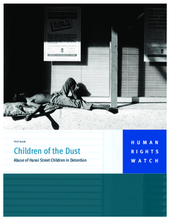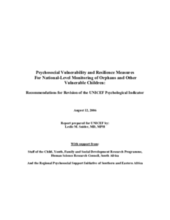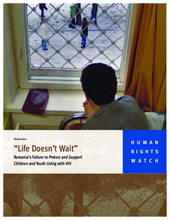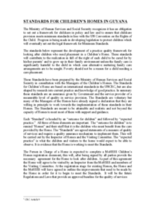Displaying 13821 - 13830 of 14579
"According to the first stage of our research, there is no significant difference between children, based on their orphan status," Quinlan said. Orphaned children are doing as well in school and engaging in the same level of risk behavior as their non-orphaned counterparts.
For street children in Hanoi, Vietnam is falling far short of its obligations under Vietnamese and international law, including the Convention on the Rights of the Child.
Par la présente observation générale, le Comité des Droits de l'Enfant souhaite encourager les États parties à reconnaître que les jeunes enfants jouissent de tous les droits garantis par la Convention et que la petite enfance est une période déterminante pour la réalisation de ces droits. Il aborde notamment la question des responsabilites parentales et des aides accordees par les Etats parties.
This page describes the process of getting the guidelines adopted by the UN continues.
This document discusses the work contributing to the area of psychosocial measurement with regard to HIV/AIDS and provides samples of surveys that can be used in measurement.
Practical and professional paperwork for residential care including registration and assessment forms, application for renewal of licences, referral forms, and emergency admission forms. Can be modified for different country contexts.
This report by Human Rights Watch is based on field research conducted in Bacău, Bucharest, Constanţa, Giurgiu, and Ilfov counties in February 2006, and follow-up telephone and email contacts through June 2006.
A set of standards for measurable quality in service provision for children living in homes. Outlines the rights of a child, planning and legalizing children’s care, children’s home administration, management and staffing, and safeguarding child welfare while in the home, which includes nutrition, health, education and religion.
The Asia Pacific Childhoods Conference will take place in Singapore from 17-20 July 2006. The conference will bring together academics, policy makers and practitioners who are working on children’s issues.
The Joint Learning Initiative on Children and HIV/AIDS (JLICA) engages practitioners, policymakers, and scholars in collaborative problem-solving, research, and analysis to address the needs of children living in the context of HIV/AIDS.




